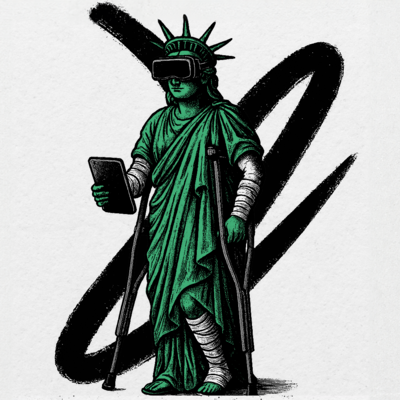
Sponsored By: AE Studio
This essay is brought to you by AE Studio, your go-to partner for custom-built AI-powered software. Transform your idea into reality faster than ever before, with bespoke MVPs designed especially for you.
“A flaming dumpster fire.”
“I can’t believe that company still exists.”
“A business so clearly a scam preying on unsophisticated investors that it will single-handedly cause the SEC to redo how IPOs work.”
These blunt assessments came from professional tech investors I spoke with regarding the upcoming IPO of Triller, a conglomerate of creator economy companies. Their harsh criticism reflects my own serious concerns about this company.
Even if you typically ignore tech IPOs, Triller deserves your attention. The company is supposed to serve creators and reduce the power of the big tech oligarchy. Everyone who cares about how information on the internet is monetized should hope for this company to be great.
Unfortunately, this company's questionable business practices and lack of transparency merit strong skepticism. Fortunately, its recent S1 filing to go public provides an opportunity to examine its finances and operations. Triller's antics reveal broader issues that demand reform of the IPO process to better protect investors. Though entertaining, Triller's shenanigans have consequences we cannot ignore.
So what does this company do again?
Just like how Mary Shelley’s Frankenstein monster was created by stitching together the discarded remains of people from the local village, Triller did the same thing with dead-in-the-water companies. It’s an amalgamation of, at my best estimation, 14 sorta useless companies that have been acquired and stitched together to create a creator economy monster.
You are not prepared for how stupid some of these assets are. They include:
- Triller: A vertical video app similar to TikTok that mostly focuses on music and dancing. Much more on this app in a minute, but it’s the namesake that started this all.
- Fangage, Amplify.ai, Cliqz, and CrossHype: These are all software products that allow creators to communicate with their fans. You may ask, “Why did you list all of these together, Evan?” To which I would reply, “They all appear to do the same thing.” They let creators send their fans text messages. There are different nuances and variations, but that is basically all there is to it.
- Thuzio: A party-planning service to help people book celebrities to show up in person at events. Cool! No relation to being a tech company, but who cares? The company says Jerry Seinfeld used it, so of course it will make money and somehow relates to the music video app.
- Metaverz: No, my spell check isn’t broken. This is really a company that spelled Metaverse with a Z. The company “provides ways to create digital experiences,” aka virtual events. As a personal rule of thumb: any serious public company does not use a Z as a replacement letter.
If you were feeling generous, you may say that these companies, while poorly marketed and confusingly segmented, do make a loose sort of sense: Triller for audience development, SaaS apps for marketing, etc. But there are far more bizarre assets as part of this Frankenstein monster. The company has also pursued lots of original content, some of which is on Triller, some of it distributed on other platforms:
- Verzuz (again that pesky Z appears): A competition show on which musicians perform in a battle of the bands. Interesting concept that the company acquired. Unfortunately, the founders of Verzuz ended up suing Triller for tens of millions of dollars of missed payments.
- Trillerfest: A music festival! Sure, why not.
- Triller Fight Club: YouTubers punching each other! Sure, why not.
- Bare Knuckle Fighting Championships: YouTubers punching each other, without protective equipment! Sure, why not.
Again, if you squint, you can see a loose way that these companies all connect. Triller can help creators create, distribute, and monetize, all within the confines of one company. It was technically started in 2015 but started its acquisition spree in 2019. The last four years of a booming creator economy and TikTok’s geopolitical struggles helped make this company theoretically rational. This is certainly the argument that it makes. But there is a reason why companies don’t just do everything—they’re more likely to win a market if they specialize. In doing everything a creator could possibly want, Triller is special at nothing.
So the natural question would be, what is this company’s differentiation?
The Only Subscription
You Need to
Stay at the
Edge of AI
The essential toolkit for those shaping the future
"This might be the best value you
can get from an AI subscription."
- Jay S.
Join 100,000+ leaders, builders, and innovators

Email address
Already have an account? Sign in
What is included in a subscription?
Daily insights from AI pioneers + early access to powerful AI tools










Comments
Don't have an account? Sign up!
great investigative piece journalism the way it should be thanks
ABGA (also the stock symbol) company from Hong Kong, is resurrecting the dead Twiller app. Beware of the hyped financial forecast and valuation. Twiller lost all respect with major black music artists. Nothing left but a zombie co. losing over $100M in 2022 and 2023 "net loss of $131.2 million in the nine months ended September 30, 2023 and $143.5 million for the fiscal year ended December 31, 2022"